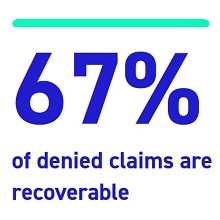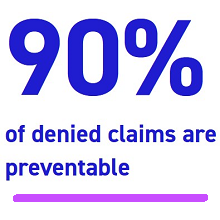Becker's Payer Issue: 3 State Tackling Prior AuthorizationBy: Andrew Cass | Monday, June 3, 2024 Three states recently passed legislation reforming the prior authorization process: 1. The Illinois General Assembly passed a prior authorization reform bill, which Gov. JB Pritzker has indicated he will sign. The bill will ban prior authorization for admission for inpatient psychiatric services, beginning in 2026. Payers will also be required to publish all services that require prior authorization on their website, and face stricter requirements to maintain an accurate provider network directory. The Illinois Department of Insurance will also gain the authority to approve or deny premium rate changes for large group policies, and the legislation bans step therapy requirements under all utilization review programs, including prescription drug plans. 2. An Oklahoma bill reforming the prior authorization process was signed into law and goes into effect Jan. 1. The legislation requires prior authorization procedures to be published on websites available to patients and providers. Those with chronic conditions must be notified no less than 60 days prior to changes that will affect them. If a prior authorization is denied, appeals must be reviewed by providers of the same or similar specialities. Payers must respond to urgent requests within 72 hours and within seven days for non-urgent requests. 3. Vermont Gov. Phil Scott signed a bill to reform the prior authorization process in the state. The legislation aligns prior authorization with Medicaid and claim edits with Medicare. It also allows patients and providers to ask for exemptions to step therapy and requires health insurers to decide prior authorizations within 24 hours for urgent situations and two business days for nonurgent care. It also directs the state's Department of Financial Regulation to prohibit prior authorization requirements for certain medication and services and require insurers to collect cost-sharing amounts from patients. Blue Cross Blue Shield of Vermont had raised concerns that the legislation could cause insurance rates to rise between 5% and 7%. Mr. Scott said that to alleviate payers' concerns he is directing the state's department of financial regulation and the agency of human services to jointly study the effects of the bill on healthcare outcomes, costs and insurance rates. They are to report back to him on the findings. The study will also include a cost impact analysis of prior authorization laws in other states to "evaluate whether they have been successful in improving outcomes and/or reducing health care costs by reducing this burden for providers, and how we can apply successful strategies to the implementation and improvement of this law." |




